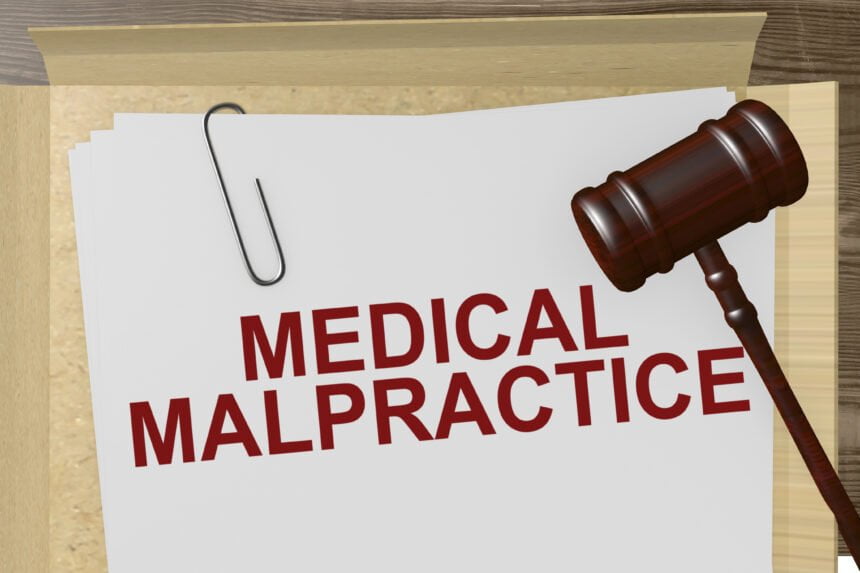Did you know that according to the National Institute of Medicine, in 2023, approximately 250,000 patient deaths in the United States were caused by medical malpractice? Avoidable deaths can be devastating and it can impact the lives of the victims’ families in many ways.
Let’s look at what medical malpractice is and how it can be prevented.
Definition of Medical Malpractice
Medical malpractice occurs when a healthcare provider fails to meet the standard of care expected in their field, harming a patient. As a patient, you trust your healthcare provider to deliver competent and safe treatment. When this trust is breached due to negligence, errors, or omissions, it can significantly impact your health.
The standard of care refers to the level of skill and diligence that a reasonable healthcare provider in the same field would provide under similar circumstances.
You may experience physical, emotional, or financial harm. This harm can manifest in various ways, such as worsening health conditions, prolonged recovery times, or additional medical expenses but not all medical errors constitute malpractice.
Your well-being is important, that’s why holding negligent healthcare providers accountable should be your priority. If you believe you have been a victim of medical malpractice and need to seek legal guidance and support from experienced professionals, visit this page.
Common Examples of Malpractice
Here are some prevalent examples of malpractice that patients should be aware of:
- Misdiagnosis is a common form of medical malpractice where a healthcare provider fails to correctly diagnose a patient’s condition, leading to incorrect or delayed treatment.
- Another example is surgical errors, such as performing the wrong procedure, operating on the wrong body part, or leaving surgical instruments inside the patient.
- Medication errors, like prescribing the wrong dosage or medication, can also have serious consequences.
- Failure to obtain informed consent before a procedure is another malpractice, as patients have the right to understand the risks and benefits involved.
- Inadequate follow-up care after a procedure or treatment can result in complications that could have been prevented with proper monitoring.
Legal Elements in Malpractice Cases
To prove medical malpractice, four key elements must be established: duty, breach, causation, and damages. Duty refers to the legal obligation of healthcare providers to follow a certain standard of care when treating patients.
A breach occurs when a healthcare provider fails to meet this standard of care, leading to harm or injury.
Causation establishes that the breach of duty directly caused the patient’s injuries.
Damages refer to the actual harm or losses experienced by the patient from the malpractice.
These legal elements are the foundation for malpractice cases, requiring thorough investigation and evidence to support each component. Understand these elements for individuals pursuing legal action against healthcare providers for negligence or substandard care.
Patient Rights and Protection
As a patient, you have the right to receive quality care, be informed about your medical condition and treatment options, and give informed consent before any procedure. Healthcare providers must respect your autonomy, privacy, and confidentiality.
Patient protection also includes the right to access your medical records, receive timely and appropriate treatment, and voice concerns or complaints without fear of retaliation. In cases of medical malpractice, knowing your rights can help you seek justice and hold responsible parties accountable.
Healthcare facilities should have mechanisms to address patient grievances and have transparency in their practices.
Preventing Medical Malpractice
To minimize the occurrence of medical malpractice, healthcare providers must prioritize thorough training and adherence to established protocols. All medical professionals should receive comprehensive and up-to-date training, including regular refreshers on best practices and new developments in their field, to reduce the likelihood of errors.
Emphasizing the importance of following standardized procedures and guidelines can also help prevent mistakes that may lead to malpractice claims. Implement strong communication practices within healthcare teams to guarantee all members are on the same page regarding patient care plans and any changes in treatment protocols.
Encouraging an open and transparent culture where staff feel comfortable speaking up about potential issues or concerns can help identify and address risks before they escalate into serious problems.
Invest in training, promote adherence to protocols, improve communication, and foster a culture of transparency, healthcare providers can take proactive steps to prevent medical malpractice and guarantee the safety and well-being of their patients.
Conclusion
Medical malpractice is a serious issue that can have lasting effects on patients’ lives. It involves healthcare providers failing to meet the standard of care, and harming patients. Understanding what constitutes malpractice and knowing your rights can help you take the necessary steps to seek justice and protect your well-being.
If you suspect malpractice, don’t hesitate to consult a legal professional for guidance. Stay informed and vigilant to protect yourself and your loved ones from potential harm.







